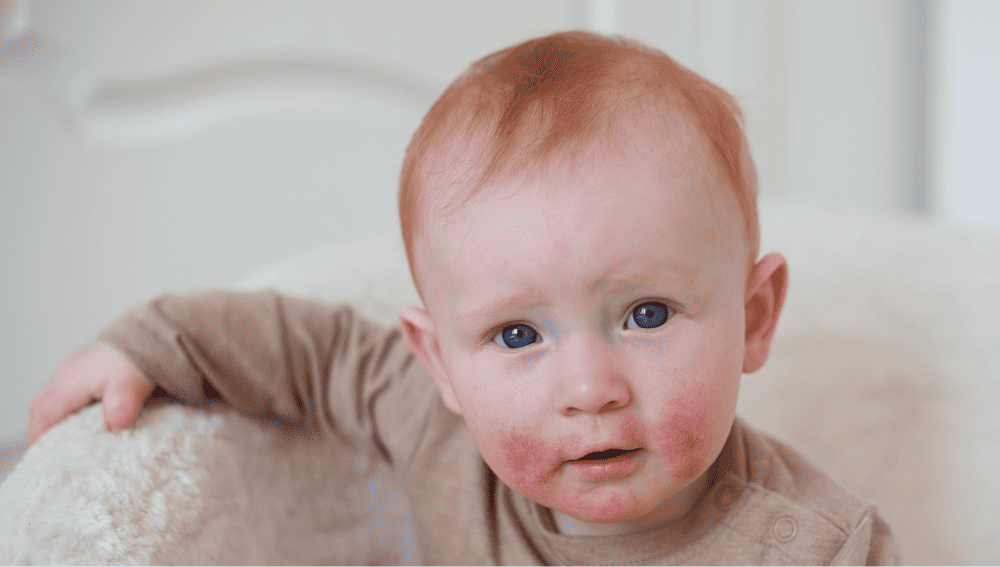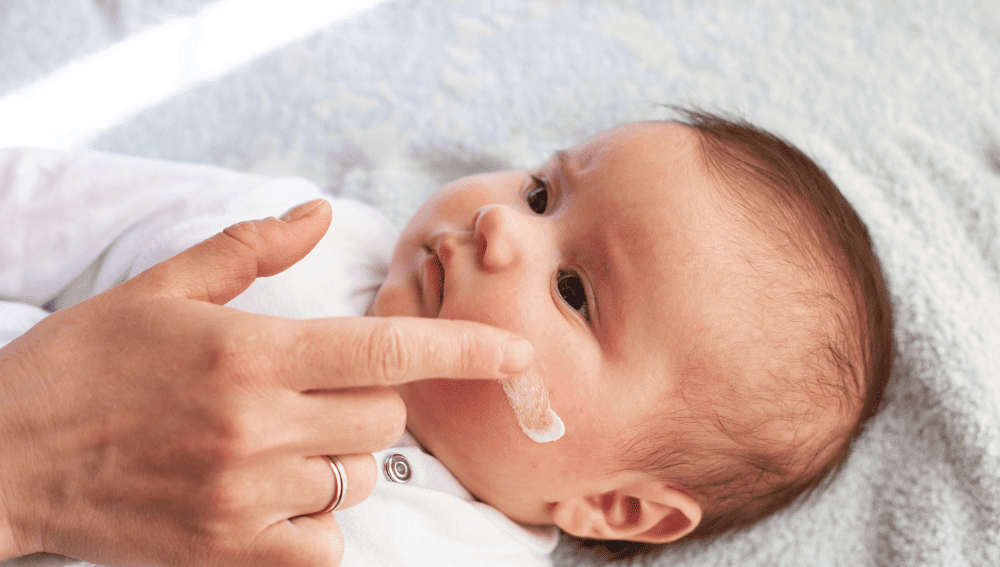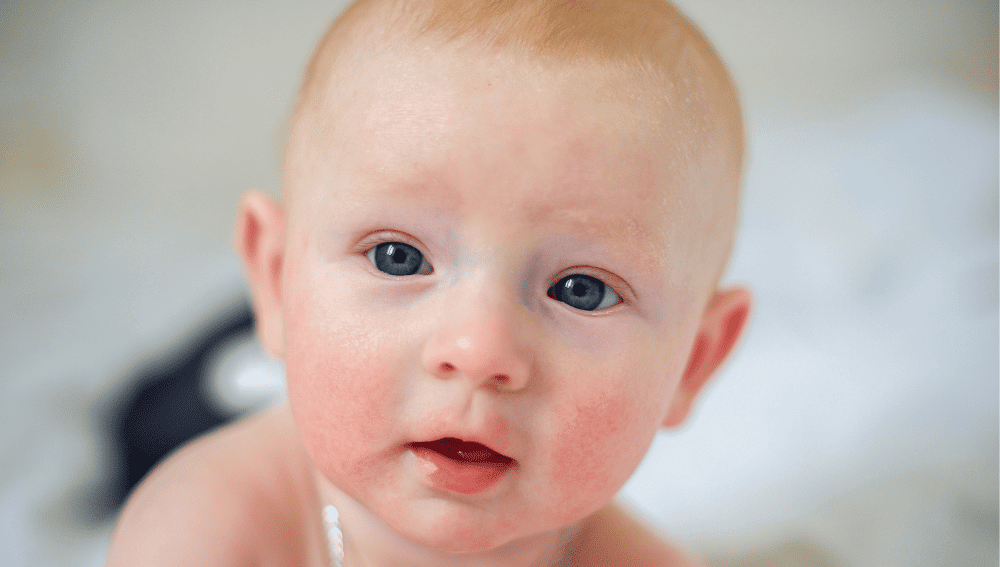Babies are known for their soft skin and delicate features, but they are also notorious for their accidental scratches and cuts. Parents often worry about their baby’s scratches, especially on their face, and wonder if it will leave a permanent scar.
While some scratches may heal on their own, others may require medical attention. In this article, we will explore the topic of baby scratched face and whether it will scar.
Babies are still learning to control their movements, and their nails can grow quickly, leading to accidental scratches on their face. These scratches can be painful, and parents may worry about the appearance of the wound and whether it will leave a scar.
Understanding the severity of the scratch and the steps to take can help prevent scarring and promote healing.
Key Takeaways
- Baby scratches on the face can be a cause for concern for parents.
- The severity of the scratch and proper treatment can prevent scarring.
- Seeking medical attention for deep scratches or infected wounds is important.
Learn more from a related post: Why Do Babies Scratch Their Faces?
Understanding Baby Scratches
Babies are known for their delicate skin, and it is not uncommon for them to accidentally scratch their face.
Parents may worry about whether these scratches will leave scars or not. In this section, we will explore why babies scratch their face and when they stop doing so.
Why Babies Scratch Their Face
Babies are born with a natural reflex called the Moro reflex. This reflex causes them to throw their arms and legs outwards when they feel a sudden movement or noise. As a result, babies may accidentally scratch their face with their nails.
Additionally, babies may scratch their face when they are exploring their surroundings or when they are trying to relieve an itch.
When Do Babies Stop Scratching Their Face
Babies typically stop scratching their face once they gain more control over their movements and reflexes. This usually happens around 3-4 months of age.
However, some babies may continue to scratch their face even after this age. In such cases, parents can use baby mittens to prevent their baby from scratching their face.
In conclusion, baby scratches on the face are common and usually do not lead to scarring. Parents can take preventive measures such as using baby mittens to avoid scratches.
Baby Skin Conditions
Babies are prone to various skin conditions due to their delicate skin. Some of these conditions are harmless and will go away on their own, while others may require medical attention.
Here are a few common skin conditions that babies may experience:
Baby Eczema
Baby eczema, also known as atopic dermatitis, is a common skin condition that affects many infants. It is characterized by dry, itchy, and red patches on the skin.
The exact cause of eczema is unknown, but it is believed to be related to genetics and environmental factors.
To manage baby eczema, it is important to keep the skin moisturized and avoid potential triggers such as harsh soaps, fragrances, and certain fabrics. In severe cases, a doctor may prescribe topical or oral medications.
Baby Acne
Newborn baby acne is a common condition that affects many infants in their first few weeks of life. It is characterized by small red or white bumps on the face, neck, and back. Baby acne is caused by hormones passed from the mother to the baby during pregnancy.
Baby acne typically goes away on its own within a few weeks or months. It is important to avoid using harsh soaps or lotions on the affected area, as this can worsen the condition.
Newborn Baby Skin Care
Proper newborn baby skin care is essential for maintaining healthy skin and preventing skin conditions. It is recommended to bathe a newborn baby every 2-3 days with a mild, fragrance-free soap and to moisturize the skin with a gentle lotion.
It is also important to avoid exposing a newborn baby’s skin to direct sunlight and to dress them in loose, breathable clothing. If a newborn baby develops a rash or skin condition, it is important to consult a doctor for proper diagnosis and treatment.
Overall, while baby skin conditions can be concerning for parents, most are harmless and can be easily managed with proper care and attention.
Preventing Baby Face Scratches
Babies are known to have sharp nails, and they can easily scratch their face or other parts of their body. While these scratches usually heal on their own, some parents may worry about the possibility of scarring. Fortunately, there are several ways to prevent baby face scratches and reduce the risk of scarring.
Use of Scratch Mittens
One effective way to prevent baby face scratches is to use scratch mittens. These are small gloves that cover the baby’s hands and prevent them from scratching themselves.
Scratch mittens come in a variety of materials, including cotton, silk, and bamboo. They are also available in different sizes, so parents can choose the right fit for their baby.
Swaddling Techniques
Swaddling is another method that can prevent baby face scratches. Swaddling involves wrapping the baby snugly in a blanket, which can help them feel secure and prevent them from flailing their arms and legs.
This can reduce the risk of scratches to the face and other parts of the body. However, it is important to ensure that the baby is not swaddled too tightly, as this can cause other problems such as overheating or difficulty breathing.
Keeping Baby Nails Trim
Keeping baby nails trimmed is perhaps the most important step in preventing baby face scratches. Parents should use baby nail clippers or scissors to trim their baby’s nails regularly, as needed.
It is important to be gentle and careful when trimming the nails, as babies’ fingers are very small and delicate. If parents are unsure how to trim their baby’s nails, they should ask their pediatrician for guidance.
In conclusion, preventing baby face scratches is important to reduce the risk of scarring. Parents can use scratch mittens, swaddling techniques, and keep baby nails trimmed to prevent scratches.
By taking these steps, parents can help keep their baby’s skin healthy and free from scars.
Treating Baby Face Scratches
When a baby scratches their face, it can be concerning for parents. While most scratches will heal on their own, there are steps that can be taken to help prevent scarring and promote healing.
Washing the Wound
The first step in treating a baby face scratch is to clean the wound with a clean cloth or gauze pad. Use lukewarm water and a mild soap to gently wash the area around the wound.
Avoid using harsh soaps or scrubbing the wound as this can cause further damage to the skin.
Applying Pressure
After cleaning the wound, apply pressure to stop any bleeding. Use a clean cloth or gauze pad and apply gentle pressure to the wound for a few minutes.
If the bleeding does not stop, apply additional pressure or use steri-strips to hold the wound closed.
Using Antibacterial Ointment
Once the wound has stopped bleeding, apply a thin layer of antibiotic ointment to the scratch. This will help prevent infection and promote healing.
Be sure to use only a small amount of ointment and avoid applying too much as this can impede healing.
If the scratch is particularly deep or large, it may be necessary to use an adhesive bandage to help keep the wound closed while it heals. In most cases, however, a scratch on a baby’s face will heal on its own with proper care and attention.
Potential Complications
Infection Risk
Scratches on a baby’s face can become infected if not properly cleaned and treated. Signs of infection may include redness, swelling, warmth, and discharge from the wound.
If any of these symptoms are present, it is important to seek medical attention immediately. In some cases, antibiotics may be necessary to treat the infection.
To prevent infection, it is important to keep the scratch clean and dry. Gently wash the area with soap and water, and pat dry with a clean towel. Avoid using any harsh chemicals or alcohol on the wound, as this can further irritate the skin.
Scarring
While most scratches on a baby’s face will heal without scarring, there is always a risk that scarring may occur. The severity of the scratch, the location on the face, and the baby’s skin type can all play a role in determining whether or not scarring will occur.
To minimize the risk of scarring, it is important to keep the wound clean and dry, and to avoid picking at any scabs that may form. Applying a thin layer of petroleum jelly to the wound can also help to keep it moist and promote healing.
When to Call the Doctor
In some cases, scratches on a baby’s face may require medical attention. If the scratch is deep or long, or if it is bleeding heavily, it may be necessary to seek medical attention.
In addition, if the scratch is located near the baby’s eye, or if there is any concern about infection or scarring, it is important to consult with a healthcare provider.
Depending on the severity of the scratch, the healthcare provider may recommend stitches, skin glue, or staples to help the wound heal properly.
Overall, it is important to closely monitor any scratches on a baby’s face, and to seek medical attention if there are any signs of infection, scarring, or other complications. With proper care and attention, most scratches will heal without any long-term effects.
Additional Baby Care Tips
Newborn Baby Sleep Tips
Newborn babies need a lot of sleep, but they can be difficult to settle. Here are some tips to help your baby sleep better:
- Swaddle your baby: Wrapping your baby snugly in a blanket can help them feel secure and calm.
- Use white noise: Soft sounds like a fan or a white noise machine can help soothe your baby to sleep.
- Establish a routine: Try to put your baby to bed at the same time every night so they can get used to a sleep routine.
- Keep the room dark and quiet: A dark and quiet room can help your baby sleep better.
Baby Bonding
Bonding with your baby is an important part of their development. Here are some tips to help you bond with your baby:
- Skin-to-skin contact: Holding your baby against your skin can help them feel safe and secure.
- Eye contact: Making eye contact with your baby can help them feel connected to you.
- Talk to your baby: Talking to your baby can help them feel comforted and loved.
- Massage your baby: Gently massaging your baby can help them relax and feel more comfortable.
Remember, every baby is different, so it may take some trial and error to find what works best for you and your little one.
Frequently Asked Questions
When do babies stop scratching their face?
Babies usually stop scratching their face when they are around three to four months old. At this age, they develop better control of their hands and fingers, which allows them to explore their environment without accidentally scratching themselves.
Why does my baby scratch his face while breastfeeding?
Babies may scratch their face while breastfeeding because they are trying to soothe themselves or because they are uncomfortable. This behavior is common in newborns and usually subsides as they get older and more accustomed to breastfeeding.
How to stop baby from scratching my face?
There are several ways to prevent your baby from scratching your face. You can trim their nails regularly, use mittens or socks to cover their hands, or distract them with toys or other objects.
It’s also important to pay attention to your baby’s cues and try to address any underlying discomfort or anxiety that may be causing them to scratch.
How long do baby face scratches take to heal?
Baby face scratches usually heal within a week or two, depending on the severity of the scratch. It’s important to keep the area clean and dry to prevent infection and scarring.
Will scratch on toddler face scar?
Whether a scratch on a toddler’s face will scar depends on the depth and severity of the scratch. Minor scratches usually heal without scarring, but deeper cuts may leave a scar. It’s important to keep the area clean and dry to promote healing and prevent infection.
Do scratches on your face go away?
Scratches on the face usually go away within a week or two, depending on the severity of the scratch. It’s important to keep the area clean and dry to prevent infection and scarring.
If the scratch is deep or does not heal within a few weeks, it’s important to seek medical attention.
Also read: Why Does My Baby Grab My Face?

Iesha is a loving mother of 2 beautiful children. She’s an active parent who enjoys indoor and outdoor adventures with her family. Her mission is to share practical and realistic parenting advice to help the parenting community becoming stronger.



